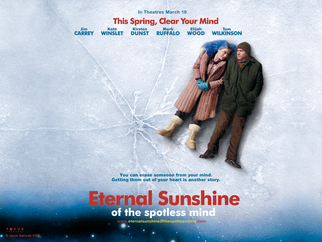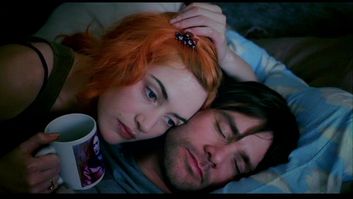
Of all Kaufman's screenplays that delve into the interior landscapes of its characters, Eternal Sunshine is the most fully formed and moving story of the bunch, a rumination on the possibilities and consequences inherent in making the process of removing unwanted memories from your consciousness as easy as going for a check-up. Kaufman here plays on our desire to forget the bad things that happen to us and what happens when we are given the power to forget those things permanently, and the conclusion he arrives at is that it ultimately creates as many - if not more - problems than it solves. At the very least, it can result in making the same mistakes again ("Those who ignore history are doomed to repeat it"); at the worst, it eliminates the possibility of our ever reconciling and coming to terms with our life experiences, the way we relate to the people who help to shape our lives and whose lives we shape through ours.

The manner in which he comes to realize and confront his dilemma is played out entirely within his interior landscape, a realm which (as anyone who remembers their dreams upon waking from sleep can attest) is a very surreal extension of our day-to-day experiences. Michel Gondry's visual style and direction works exceptionally well here in conveying the slippery, chaotic unpredictability of the worlds we construct from our memories and experiences; the clever interplay between this interior world and the goings-on of the outside world helps keep the viewer off-balance just enough to illuminate the fuzzy line of demarcation separating the two worlds and the peculiar manner in which they play off one another.

This film will make you reconsider your opinions about many things: life, love and memories. Gondry has brilliantly made it confusing and fast, yet clear and profound at the same time. The film is delicate and soft, but it hits you right in your heart. This is definitely a movie everyone should see. Because if they did, love would never be the same again.

 RSS Feed
RSS Feed
